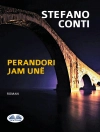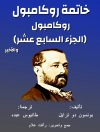It is a remarkable sequence of events, a story which in these days of high civilisation is so extraordinary as to almost stagger belief. Yet the higher the civilisation the more refined are its evil-doers, the more ingenious is the innate devilry of man, the more skilful are those who act with malice aforethought. In replacing this strange drama of present-day life before the reader.a drama of love, of self-sacrifice, of evil passions, and of all uncharitableness.I, Clifton Cleeve, am compelled to speak of myself; to recount the strange adventures which befell me, and to expose to the public gaze the undercurrents of a curious phase of society, of the existence of which few dream. If, therefore, I am forced to the constant use of the first person singular, it is in no egotistical sense, but merely in order that my strange story should be properly understood, and that the blame which rightly attaches to me should not be borne by others. In this narrative of curious circumstances are facts that will astound, perhaps even terrify; nevertheless be it recollected that I myself was an unwilling actor in this drama, and that I only relate that which. I saw with my own eyes and heard with my own ears. Even now, as I recall the past, there are scenes before me as vivid in every detail as though the events occurred but an hour ago; scenes which could not fail to leave a life-long impression upon the mind of any man, so unusual, so striking, so utterly extraordinary were they. A little more than two years have now elapsed since that well-remembered night when the prologue was enacted.
Over de auteur
William Tufnell Le Queux (2 July 1864 – 13 October 1927) was an Anglo-French journalist and writer. He was also a diplomat (honorary consul for San Marino), a traveller (in Europe, the Balkans and North Africa), a flying buff who officiated at the first British air meeting at Doncaster in 1909, and a wireless pioneer who broadcast music from his own station long before radio was generally available; his claims regarding his own abilities and exploits, however, were usually exaggerated. His best-known works are the anti-French and anti-Russian invasion fantasy The Great War in England in 1897 (1894) and the anti-German invasion fantasy The Invasion of 1910 (1906), the latter of which was a phenomenal bestseller.












